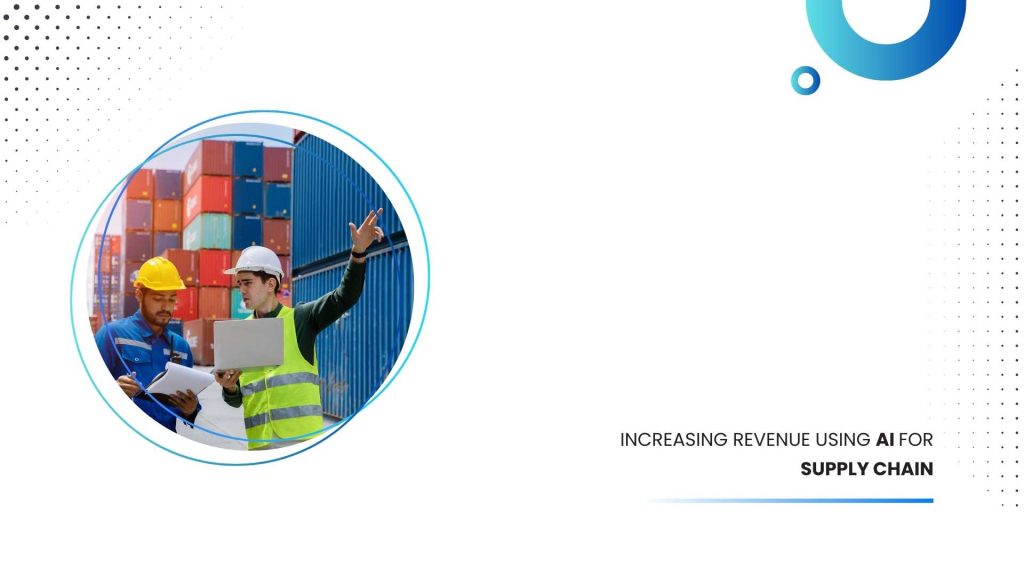In the ever-evolving realm of supply chain operations and logistics, the integration of advanced AI has emerged as a transformative force, revolutionizing established practices and driving unparalleled efficiency. AI is reshaping various aspects of the supply chain ecosystem, from enhancing safety protocols to optimizing operational expenses, enabling swift decision-making, streamlined operations, and continuous improvement.
Improved Safety Standards
Safety is paramount in the logistics industry. AI-powered predictive analytics and machine learning algorithms analyze vast data to identify potential safety hazards, predict equipment failures, and mitigate risks before they escalate. By proactively addressing safety concerns, AI minimizes accidents, enhances workplace safety, and safeguards personnel and assets.
Unlocking Fleet Management Efficiencies
AI-driven fleet management solutions optimize vehicle routing, load balancing, and driver scheduling to maximize fleet efficiency and productivity. AI algorithms analyze traffic patterns and weather conditions, identify the most efficient paths, and reduce delivery times.
Furthermore, AI-powered telematics systems monitor vehicle performance, driver behavior, and cargo conditions, enabling proactive interventions to improve operational efficiency and ensure timely deliveries.
Informed Supplier Selection
AI facilitates data-driven supplier selection by analyzing supplier performance, reliability, and pricing trends. By leveraging predictive modeling, AI identifies optimal sourcing strategies, mitigates supply chain risks, and enhances supplier collaboration.
Additionally, AI-powered procurement platforms automate supplier evaluation processes, streamline contract management, and negotiate favorable terms, driving cost savings and operational excellence.
Increased Revenue Growth By Reducing Operation Costs
AI-driven optimization algorithms optimize route planning, vehicle utilization, and inventory management, significantly reducing operational costs.
By minimizing fuel consumption, reducing idle time, and optimizing delivery schedules, AI enables companies to achieve greater operational efficiency and profitability.
Moreover, predictive maintenance powered by AI prevents costly equipment breakdowns, ensuring uninterrupted operations and maximizing revenue streams.
Improve Customer Service
AI-powered chatbots and virtual assistants revolutionize customer service by providing real-time assistance, resolving queries, and facilitating seamless communication.
By leveraging machine learning, these AI-driven solutions offer personalized support, enhance customer satisfaction, and foster long-term loyalty. AI-enabled predictive analytics anticipate customer demand, ensuring timely deliveries and optimizing inventory levels to effectively meet customer expectations.
Key Applications Of AI In Logistics And Supply Chain Management
Chatbots In Operational Procurement:
AI-powered chatbots streamline procurement processes by automating routine tasks, such as purchase requisitions, order tracking, and supplier inquiries. This enhances operational efficiency and reduces cycle times.
Automated Warehousing:
AI-driven robotics and automation technologies optimize warehouse operations by automating picking, packing, and sorting tasks, improving order accuracy, reducing fulfillment times, and enhancing overall warehouse efficiency.
Data-Driven Demand Forecasting:
AI algorithms analyze historical sales data, market trends, and external factors to forecast demand accurately, optimize inventory levels. And minimize stock outs, ensuring uninterrupted supply chain operations and meeting customer demand efficiently.
Real-Time Cargo Monitoring:
In real-time, AI-enabled IoT sensors and predictive analytics monitor cargo requirements, such as temperature and humidity, to prevent damage, ensure regulatory compliance, and maintain product quality throughout the supply chain journey.
Summary: AI is transforming logistics and supply chain management and redefining how businesses operate, innovate, and compete in today’s hyper-connected world. With AI technology, businesses can unlock new possibilities, optimize processes, and deliver superior value across the entire supply chain ecosystem, driving competitive advantage in the digital age.
Conclusion:
Acumatica Cloud-based ERP enhances supply chain management by integrating inventory management, order processing. And demand forecasting to streamline operations, improve visibility, and optimize resource utilization.
Businesses benefit from Acumatica ERP’s real-time data analytics, customizable dashboards. And cloud-based architecture for informed decision-making, swift responses to market changes, and efficient inventory management. Collaboration across teams is enhanced, fostering agility in the supply chain. Acumatica ERP empowers businesses with efficiency, transparency, and resilience in supply chain operations.

Vijay comes with a vast experience in ERP and enterprise solutions space with about 20 years of experience in various packaged application like Acumatica, SAP, Orion, Salesforce.com, SugarCRM and, SalesLogix.

